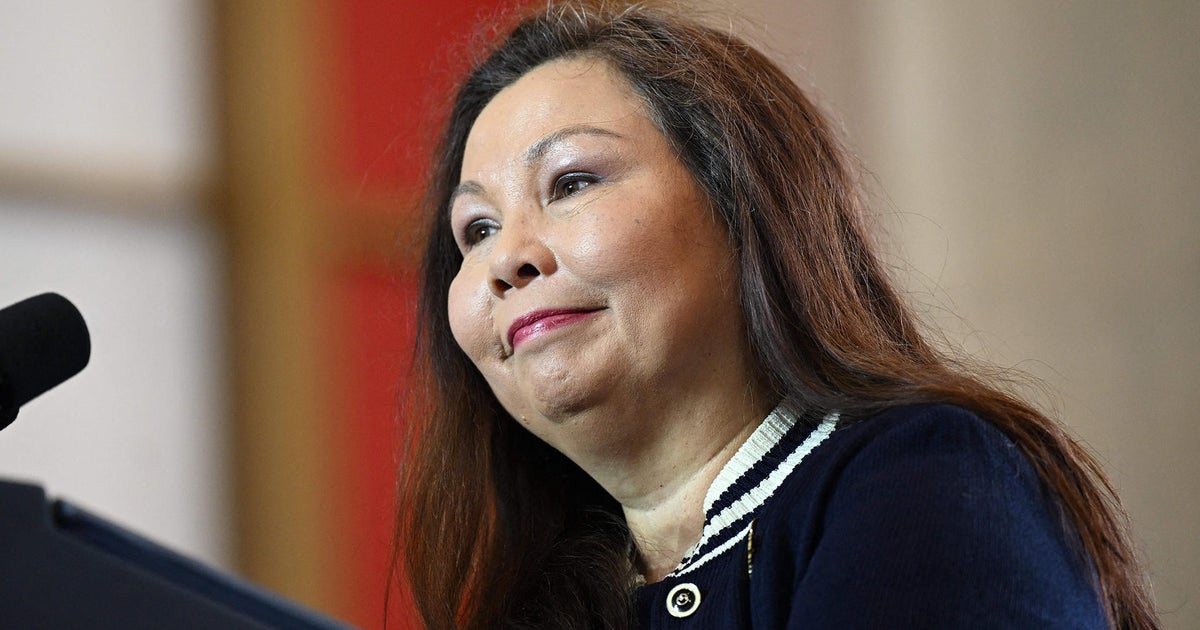The Coming Battle Over Cryptocurrency Regulation

The creators of “Unicorn Hunters,” an online reality show where budding entrepreneurs pitch their business ideas to a celebrity panel, are launching a new cryptocurrency.
It may sound gimmicky, but the forthcoming “Unicoin” could come with a layer of accountability absent from most crypto tokens. That’s because TransparentBusiness, the majority owner of the show, says it plans to register Unicoin with the Securities and Exchange Commission.
Unicoin would be one of thousands of digital assets backed by the distributed ledger technology known as blockchain, but one of only a few voluntarily complying with securities laws. It’s partly a bet that the SEC will expand its oversight of the $2 trillion crypto industry.
“We anticipate that they will begin to have a regulatory presence at some point,” Unicoin co-creator Moe Vela, an attorney and former senior adviser to Joe Biden when he was vice president, said in an interview. “I think you’re going to see regulatory guidelines and parameters that come in the next year.”
The SEC has led the charge in the nascent battle over crypto regulation in Washington, having accused dozens of crypto players of using newfangled technology to violate old-fashioned securities laws against ripping off investors.
Crypto’s proponents view it as one of many potential utopian applications of the blockchain technology, while its critics see fraud, speculation and criminal activity. Crypto transactions go through peer-to-peer computer networks rather than a central intermediary such as a bank, and criminals have used them for illicit transactions such as ransomware attacks; the International Monetary Fund has warned crypto could undermine monetary policy and financial stability.
In an executive order last month, President Joe Biden asked the SEC and other regulatory agencies, such as the Commodity Futures Trading Commission, the Federal Reserve, the Federal Trade Commission and the Consumer Financial Protection Bureau to help come up with a whole-of-government approach to making the industry safe.
In Congress, most lawmakers seem oblivious to crypto and intimidated by the endless jargon associated with the technology. Among the few lawmakers paying attention, there are fans; a small bipartisan group of House members has proposed exempting crypto from SEC oversight, arguing the federal government shouldn’t pursue “regulation through enforcement,” echoing the pleas of the industry for Congress to step in.
“We really should acknowledge that our banking and securities laws — some of which date back to the 1930s — are not equipped to provide a framework for regulating something that no one could have even imagined 20 years ago,” Sen. Pat Toomey (R-Pa.), the top Republican on the Senate Banking Committee, told HuffPost.
Partisan battle lines haven’t settled, but Democrats are a bit more skeptical. Banking Committee Chairman Sen. Sherrod Brown (D-Ohio), for instance, has described digital assets as mainly beneficial for criminals, letting “money launderers, hackers, and rogue regimes invent new ways to hide and move money in the dark,” as he said at a hearing last month.
Brown told HuffPost Republicans calling for new legislation want to coddle the industry rather than crack down on fraud.
“They say they’re for regulation, but they’re not going to do anything substantive that anybody in the industry would oppose,” Brown said.
For now, Brown is happy to let executive agencies try to enforce existing laws. The SEC has brought more than 70 enforcement actions against digital asset market participants over the past decade, including an ongoing lawsuit alleging the company Ripple Labs violated securities laws by failing to register its XRP digital asset with the commission, thereby depriving investors of disclosures about XRP and Ripple’s business.
Commissioner Gary Gensler has spoken stridently about crypto, likening the industry to the “Wild West.” He said exchanges where people buy and sell crypto are illegal if they’re not registered. “It’s a question of whether they’re registered or they’re operating outside of the law and I’ll leave it at that,” he said last month.
Republican SEC appointees have complained the commission’s enforcement actions are a piecemeal approach that leaves the crypto industry unsure of when its crypto coins count as securities or another kind of asset not subject to securities laws. The Commodity Futures Trading Commission, for instance, has said that the best-known cryptocurrency, Bitcoin, counts as a commodity, not a security. There’s no company or central entity behind Bitcoin, making it one of the most decentralized digital assets that exists.
Todd Phillips, an expert on financial regulation and corporate governance at the progressive Center for American Progress, said it’s clear enough current laws already cover much crypto activity, they’re just being ignored.
“Many issuers of crypto tokens are failing to register their offerings with the SEC,” Phillips said. “If you want to sell tokens to the public and do it right, federal law requires you to register.”
Phillips said the reason the crypto industry remains essentially unregulated is that the SEC doesn’t have the resources to enforce the law at the scale needed to bring the necessary amount of lawsuits.
Lawmakers have been bamboozled by new financial technology before. If Congress exempted the crypto industry from regulation, Phillips has argued, it would be making the same mistake it did in 2000, when lawmakers carved financial derivatives contracts out of commodities regulation. Back then, members of Congress talked about derivatives the same way many now rave about crypto, complaining that outdated statutes were stifling financial innovation and threatening America’s technological leadership. Unregulated derivatives subsequently played a starring role in the 2008 financial crisis, magnifying the fallout from risky mortgage lending.

Kevin Dietsch via Getty Images
A broad, bipartisan crypto bill could come together this year, the result of a collaboration between Sens. Cynthia Lummis (R-Wyo.) and Kirsten Gillibrand (D-N.Y.). Lummis, herself a major crypto investor, said the legislation would not shield the industry from SEC oversight — developers would have to register their initial coin offerings with the commission.
“It preserves traditional authorities: CFTC over commodities, SEC over securities,” Lummis told HuffPost. “It provides definitions. It discusses stablecoins, banking, privacy and consumer protection.”
Lummis emphasized that she’s working on the legislation with Democrats: “Digital assets are a nonpartisan subject,” she said.
It’s not clear if the industry would embrace such a bill. Adelle Nazarian, CEO of the American Blockchain Political Action Committee, sounded a skeptical note about the idea of requiring initial coin offerings to be registered with the SEC.
“It would be remiss of me to suggest that ICOs could ever be exempt from regulation by the SEC,” Nazarian said. “Therefore, there must be a whole new subset of rules, deferential language with a more elastic framework for ICOs — with guidance from the SEC — that will fall under the heading of the same overarching [anti-money laundering and know-your-customer] rulemaking in following these guidelines so innovation may continue to flourish.”
Industry insiders argue Congress shouldn’t try to “pigeonhole” crypto into existing regulatory frameworks. Steve Bumbera, the lead developer of a crypto project called the Many Worlds token, said the SEC has been on the “warpath” and that Congress should come up with a new agency dedicated to crypto regulation. Short of that, he said lawmakers could at least come up with a clearer system for figuring out which regulator oversees different types of crypto product.
“It doesn’t really fall strictly into one asset class or another. Some can first be a security and change into a utility,” Bumbera said. “If the SEC wanted everyone to register as a security, that would destroy 95% of projects.”
In the case of Unicoin, its creators say the token will pay dividends based on the performance of investments in emerging growth companies, including some of those featured on the Unicorn Hunters show, in which Vela and Apple co-founder Steve Wozniak, plus other business luminaries and celebrities, evaluate investment pitches from entrepreneurs hoping to vaunt themselves into billion-dollar “unicorn” status.
In other words, it’s obvious that Unicoin would meet the definition of a security — buying the coin means investing in a common enterprise with a reasonable expectation of profits to be derived from others.
Many other crypto tokens are securities, too, but without tough enforcement there is a strong incentive to avoid registering with the SEC, because it’s a major chore.
“It’s expensive and it takes a while,” Richard Devlin, senior vice president and general counsel for TransparentBusiness, said in an interview. “You need a lot of lawyers and it’s a several months long process. And then you’re a public company, which has its own ongoing reporting and compliance requirements, so it’s not cheap.”
Daniel Marans contributed reporting.
Checkout latest world news below links :
World News || Latest News || U.S. News
Source link



